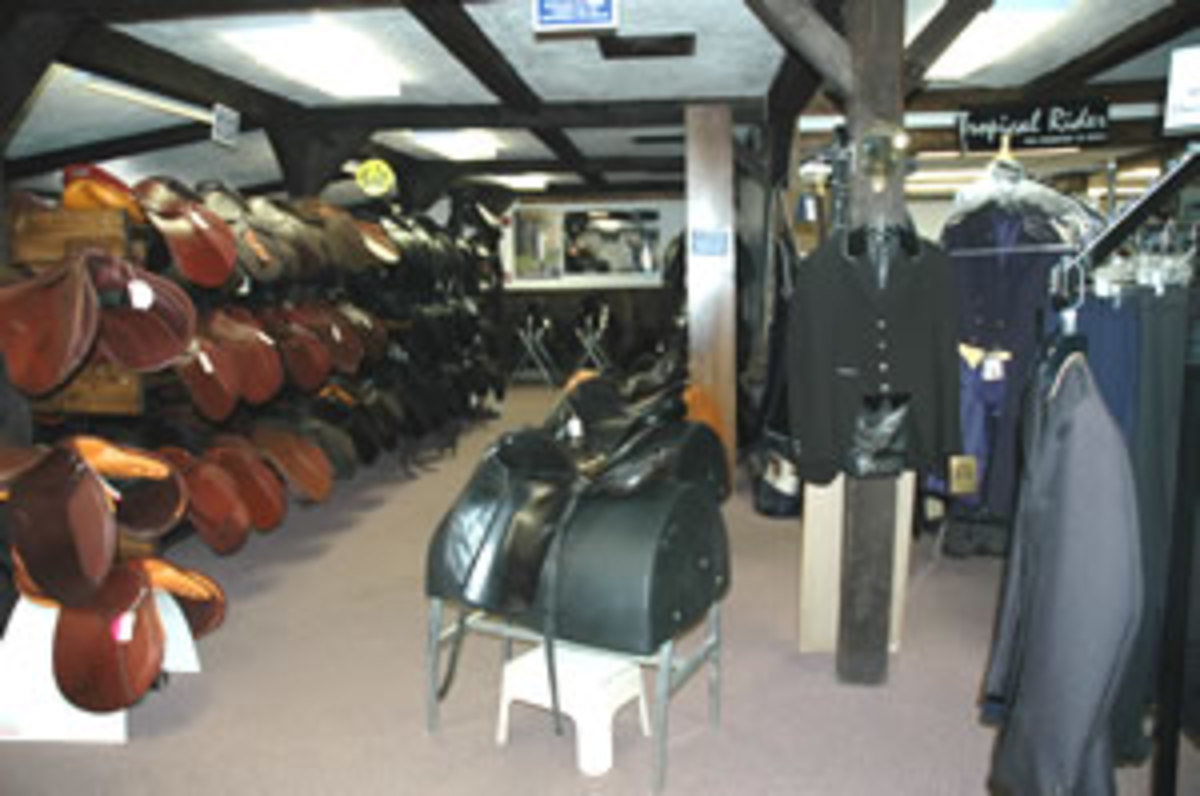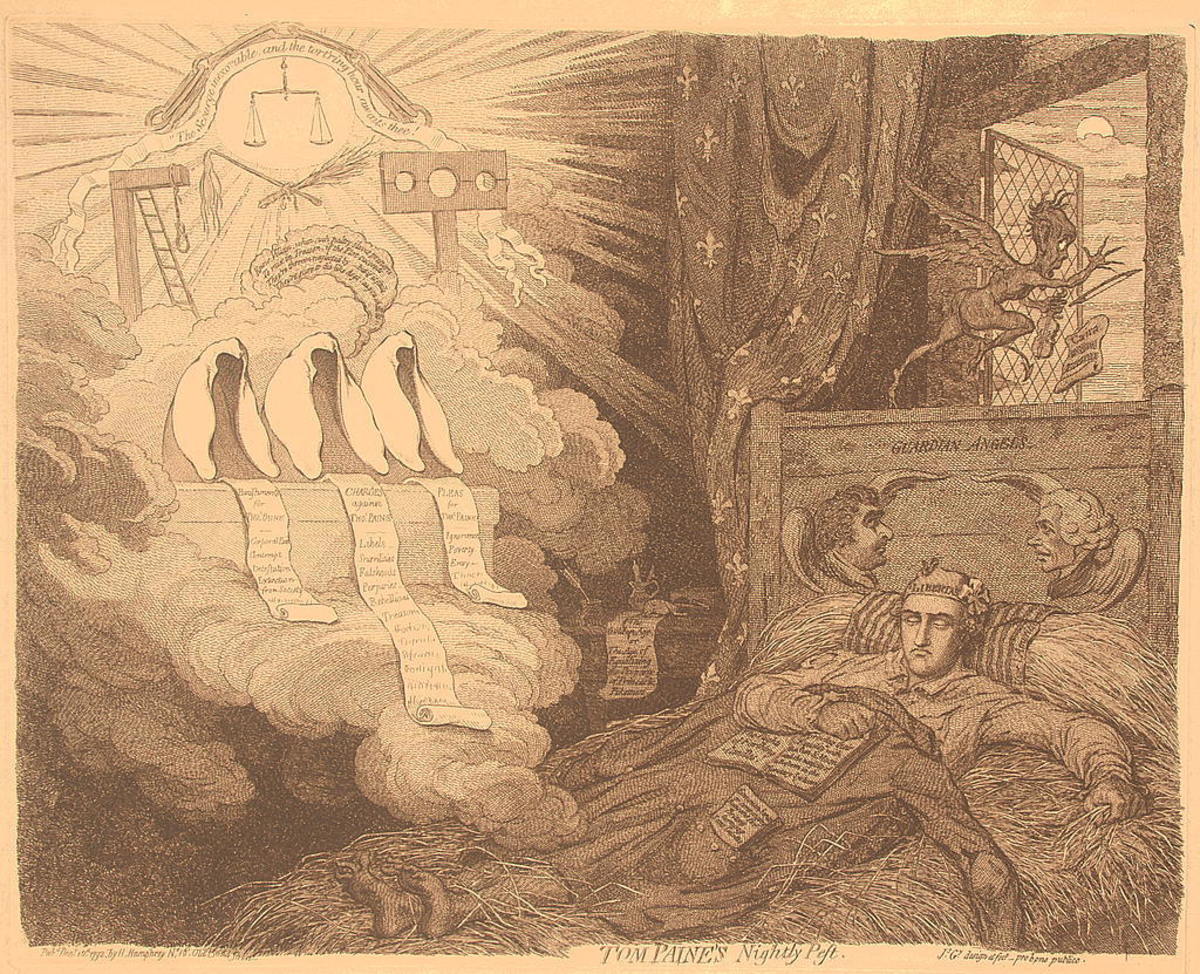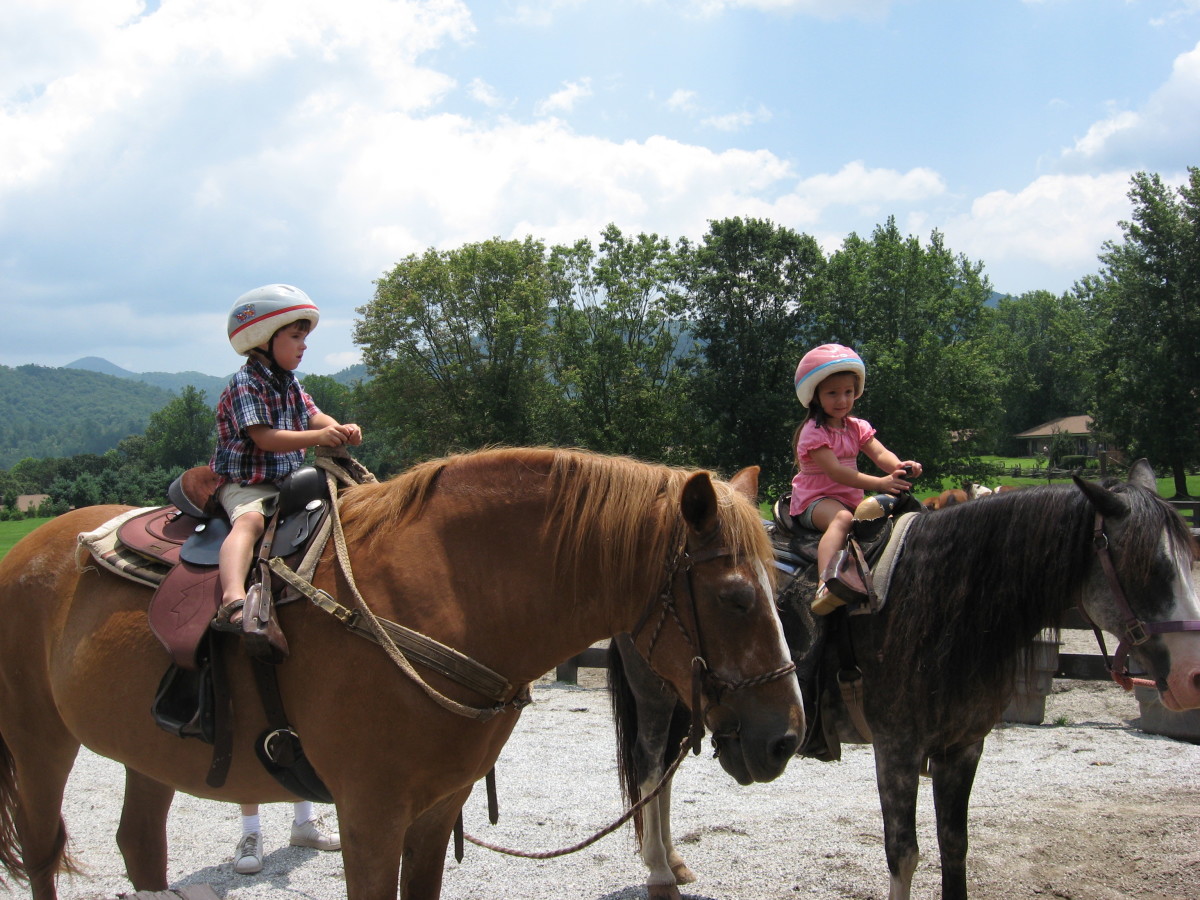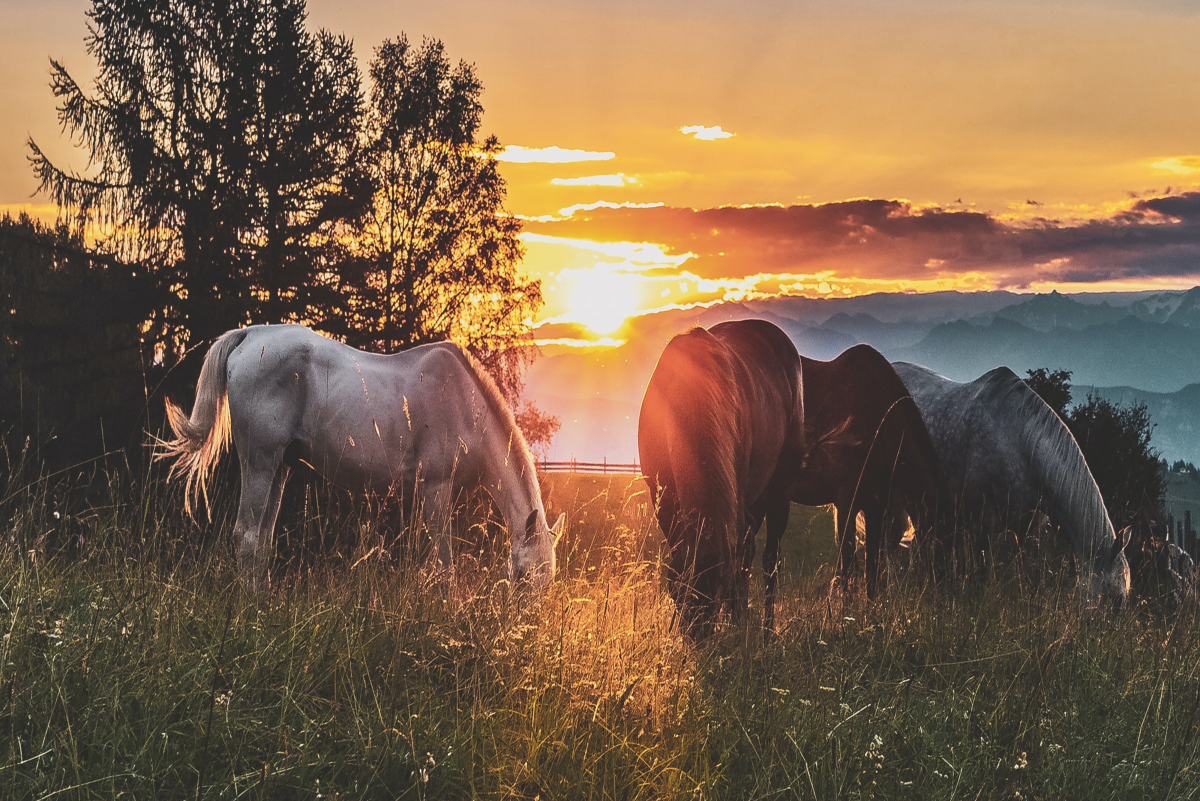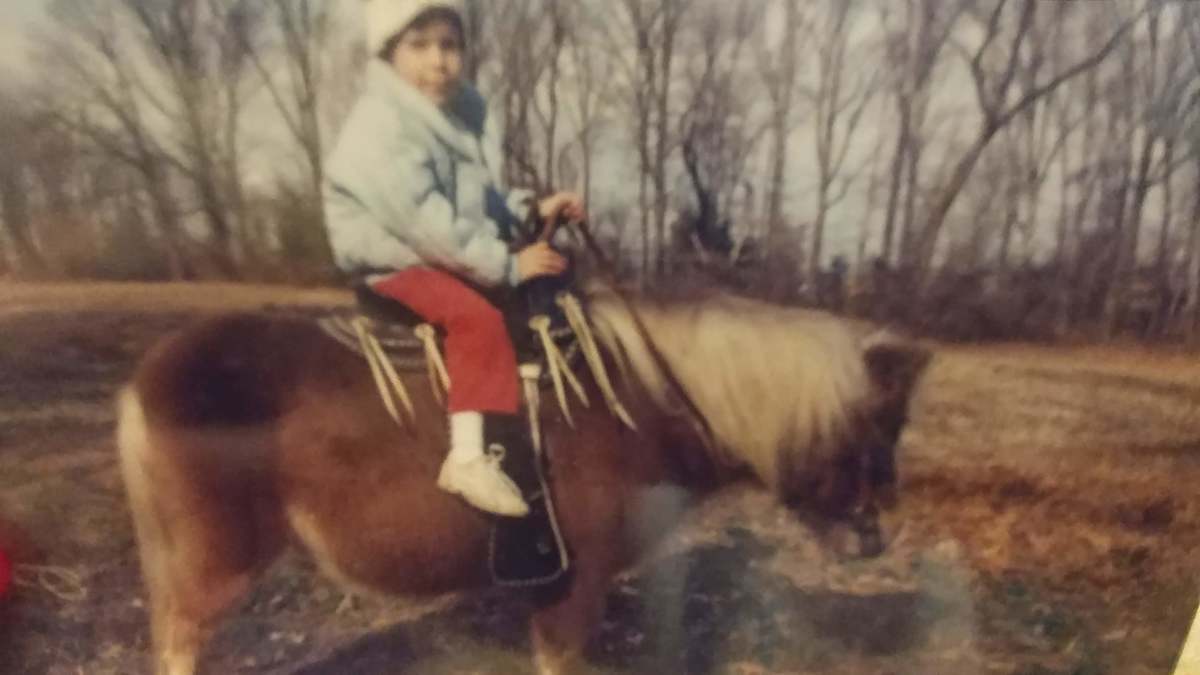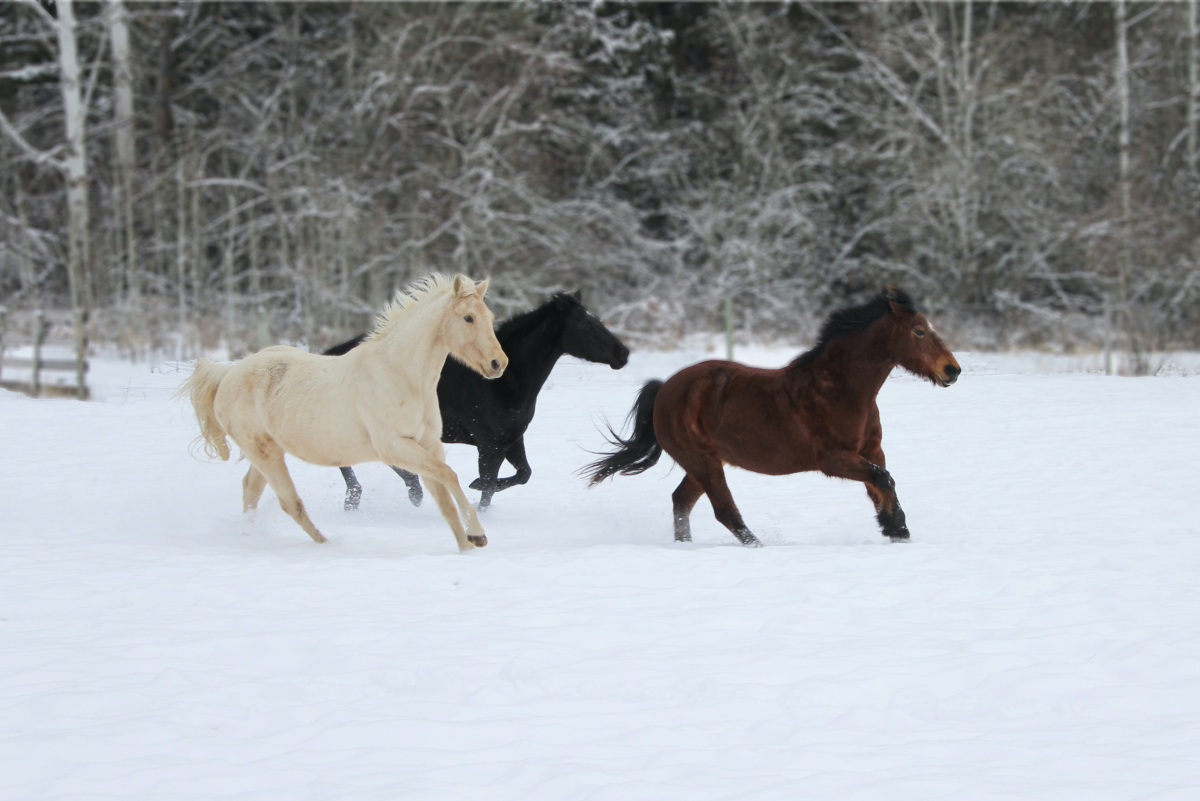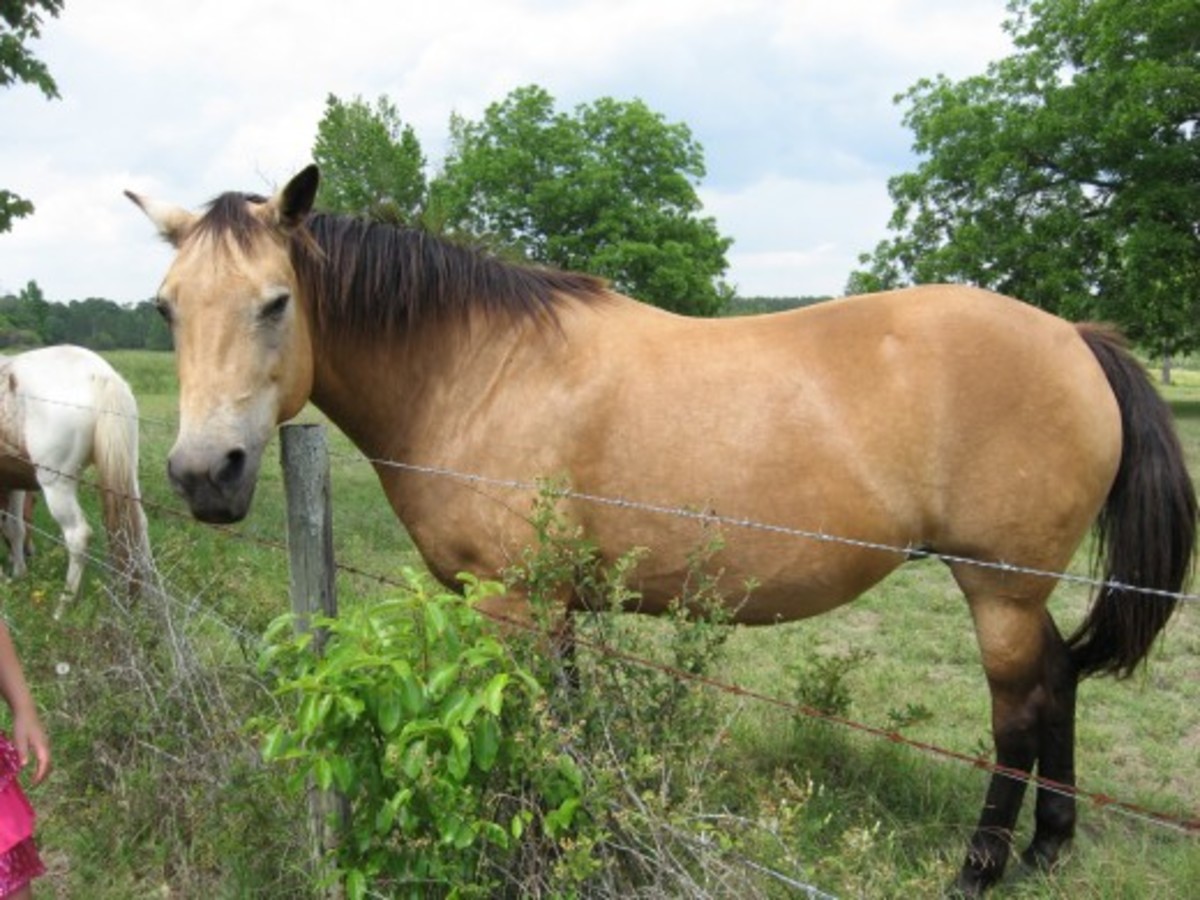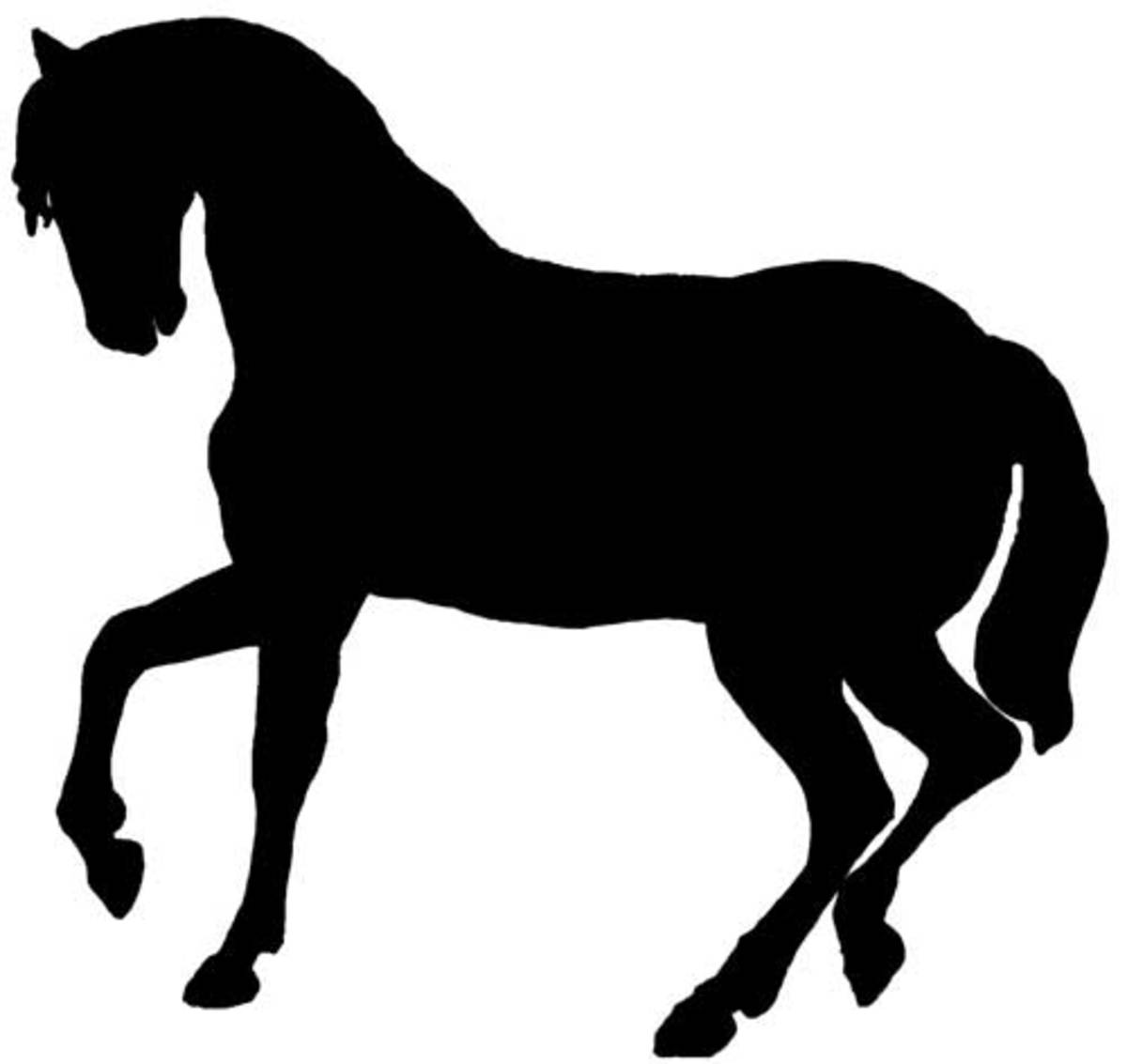Colic Can Kill Your Horse
One of the most heart breaking experiences, in my career with horses, was on an Arabian farm when a gallant champion gelding was taken with a fatal case of colic.
Good management is the best preventive of colic
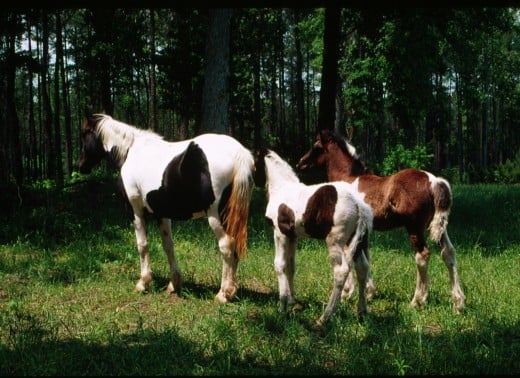
A Personal Story
Star was once a National Champion Park Horse. He was a spirited and powerful horse, and he was well aware of his power. No one could really "handle" him, they just hung in there for the ride.
When I met Star he was retired and enjoying a life of leisure. He had mellowed in his old age. During those days I was his groom and he kindly tolerated me. I could catch him in the pasture only after all the other horses had been caught and he didn't want to stay out there alone anyway. Whenever we walked through the barn he'd cast a suspicious glance at the wheelbarrow, and hesitated walking into the wash rack, just a little.
His muscles were still strong and firm, even though he was in his twenties. His coat sparkled in the sun like a brand new penny. He had a beautiful arched neck and refined head that affirmed his Arabian heritage. An intense, bright look in his eyes indicated he was extremely intelligent.
When he first became sick it didn't seem too serious. He exhibited some signs of mild colic; looking frequently at his side and exhibiting some restlessness in his stall. The vet treated him, and by the time I left for the evening he seemed much improved.
But the next day when I returned, I saw immediately he was still uncomfortable. His nervous circling in the stall led to lying down and getting up repeatedly. I immediately reported my concern to the owners.
Again the vet came and again after treatment Star seemed better. But by evening his symptoms returned again. Every time I went out of his sight he'd whinny and call me back, as if he expected for me to relieve the discomfort.
Now, Star wanted to lie down and roll, a dangerous situation because in rolling the distended intestines can become twisted, causing a permanent blockage and certain death. What we didn't know at that time was that the intestines were already blocked.
Waiting for Star's owners to arrive, I was able to keep him walking until time for his next dose of medication. He stood still long enough for me to give the shot and then began to crumple to the floor. I got him to get back up and walked him until the owners arrived. They immediately recognized the hopelessness of the situation and made the decision to have Star euthanized. The three-hour trip to the nearest veterinarian hospital would only be further torture; we knew he couldn't survive the long trailer ride.
I will never forget the courage and determination Star showed in his last hour. But I knew his pain must be awful. His teeth showed in a grimace as he'd lie down, stretch out and moan. Then he was quiet except for the sound of his shallow breathing. After resting a few moments Star stood back up, and was on his feet when the vets truck rolled into the stable yard.
He quickly examined Star and assured us were making the only humane decision. I led Star out into the stable yard for the final injection.
Colic: Causes and Prevention
What is colic? What is the cause and what can you do to prevent your horse from colicing?
A twisted intestine caused Star's fatal case of colic. In his case it had nothing to do with management. Sometimes a loop of intestine can slip into an opening in the mesenteric tissue and not come back out. This is what the necropsy revealed had happened to Star. Even if we had lived near a large animal hospital I am not certain surgery would have saved his life, because of his age.
However, good management can greatly reduce the likelihood of your horse getting colic. What is colic exactly? It is not a disease specifically. The word colic refers to abdominal pain, which can have many causes. The pain can be caused by a concentration of gas, feed or fluid in the intestinal tract due to a blockage or failure in the natural movement of the tract.
The most common source of blockage is parasite infestation. Some statistic show that ninety percent of all colic cases are caused by parasites. Regular deworming can prevent colic by internal parasites.
In areas that have sandy soil, sand colic is common. It is caused by horses being fed hay off the ground or grazing on over-grazed pasture. They pick up and swallow small amounts of sand with the food. After doing this for an extending period of time the sand builds up in the intestinal tract until it forms a blockage. As much as fifty pounds of sand has been found inside horses that have died of this type of colic. In addition to causing a blockage the sand also irritates the wall of the intestines and can kill the tissue.
To prevent sand colic do not feed hay to your horses on the ground or let him drink from a muddy water source. If you live where the soil is very sandy a feed additive can be mixed with the horse's ration that contains pysllium. This product turns into a gel that traps the sand and moves it out through the digestive system.
Star showed the classic symptoms of colic. Other signs include pawing and kicking, sweating, biting at the side. Rapid breathing and heart rate are signs of pain.
The best advice is to call your veterinarian as soon as you see signs of colic. His first task is to try to determine the cause. Mild cases usually respond to immediate treatment. But even a mild case of colic can become serious if ignored. Controlling the pain is important to prevent the horse from going into shock, but this is not a cure. Drenching with mineral oil is a common remedy for mild colic and various drugs are used cautiously. In the most severe cases surgery may be required to remove the blockage, a very expensive and risky procedure.
The old adage, "an inch of prevention is worth a pound of cure" certainly applies when dealing with colic. A proper deworming program is the best defense against parasites causing colic. Good nutrition, plenty of clean water to drink, a clean and safe environment and a well conditioned horse all contribute to a healthy animal and the prevention of most cases of colic.
(The story of Star is a true story based on an actual experience. Names and places have been changed for the sake of privacy.)


